If Mass Effect 5 wants to earn a similar reputation for being a cutting-edge RPG like the original trilogy, it will need to take some important cues from Baldur’s Gate 3. At the time of their release, the original Mass Effect games were lauded for their in-depth story and how players’ choices could carry over from one game to the next. However, at this point, those qualities are old news, and RPGs like Baldur’s Gate 3 have improved on them significantly.
Baldur’s Gate 3 offered players a wide range of branching dialogue trees with an astonishing number of hidden options. Players could even get some rare voice lines from companions like Shadowheart depending on the race they chose to play as. Going back and replaying the original Mass Effect games reveals just how far games have come in terms of their dialogue options, and how far Mass Effect 5 will need to go to catch up with the current expectations of RPG players.
Mass Effect's Choices Were Too Telegraphed
Mass Effect Kept Paragon And Renegade Options In The Same Place
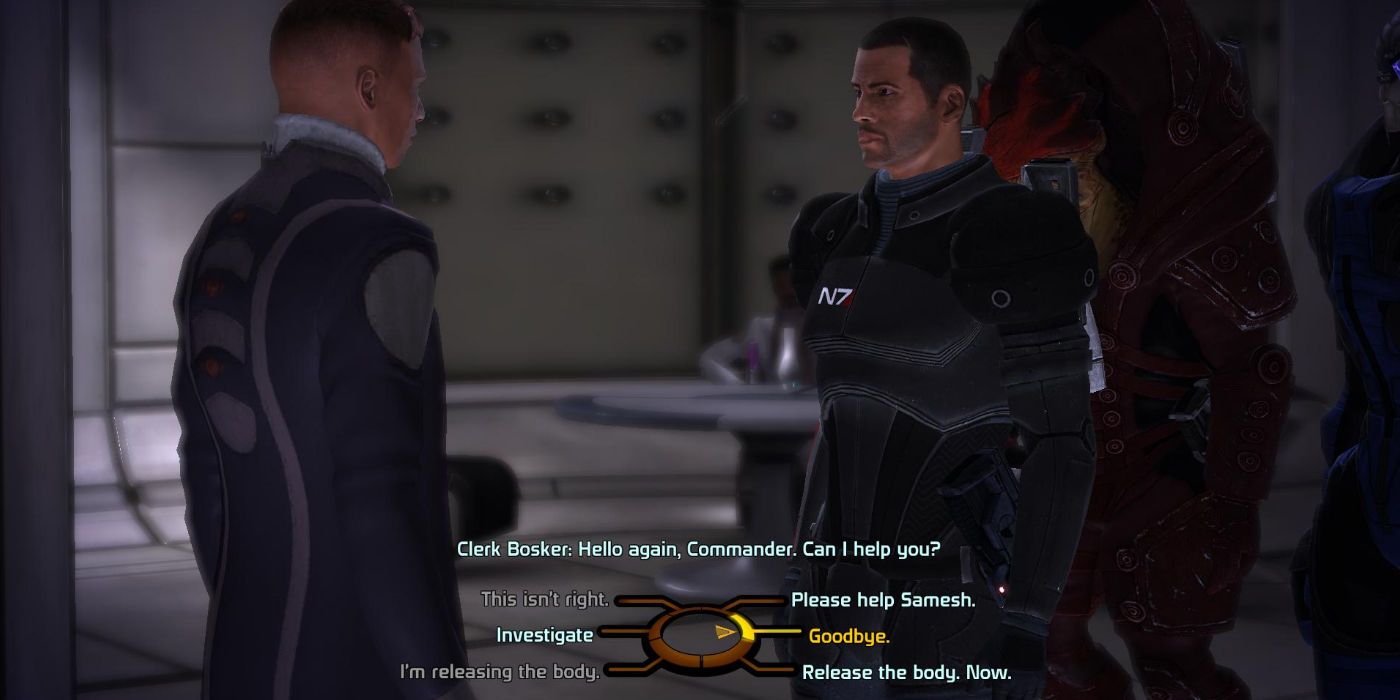
One of the most dated aspects of Mass Effect’s dialogue options was the way it telegraphed the Paragon and Renegade options. Although it may take players a few conversations to catch on, it quickly becomes apparent that all the options to the top right of the dialogue wheel are Paragon options, and the bottom right is Renegade. After a while, this can lead to players checking out of a conversation and just tilting the thumbstick in the direction they want to score points in.
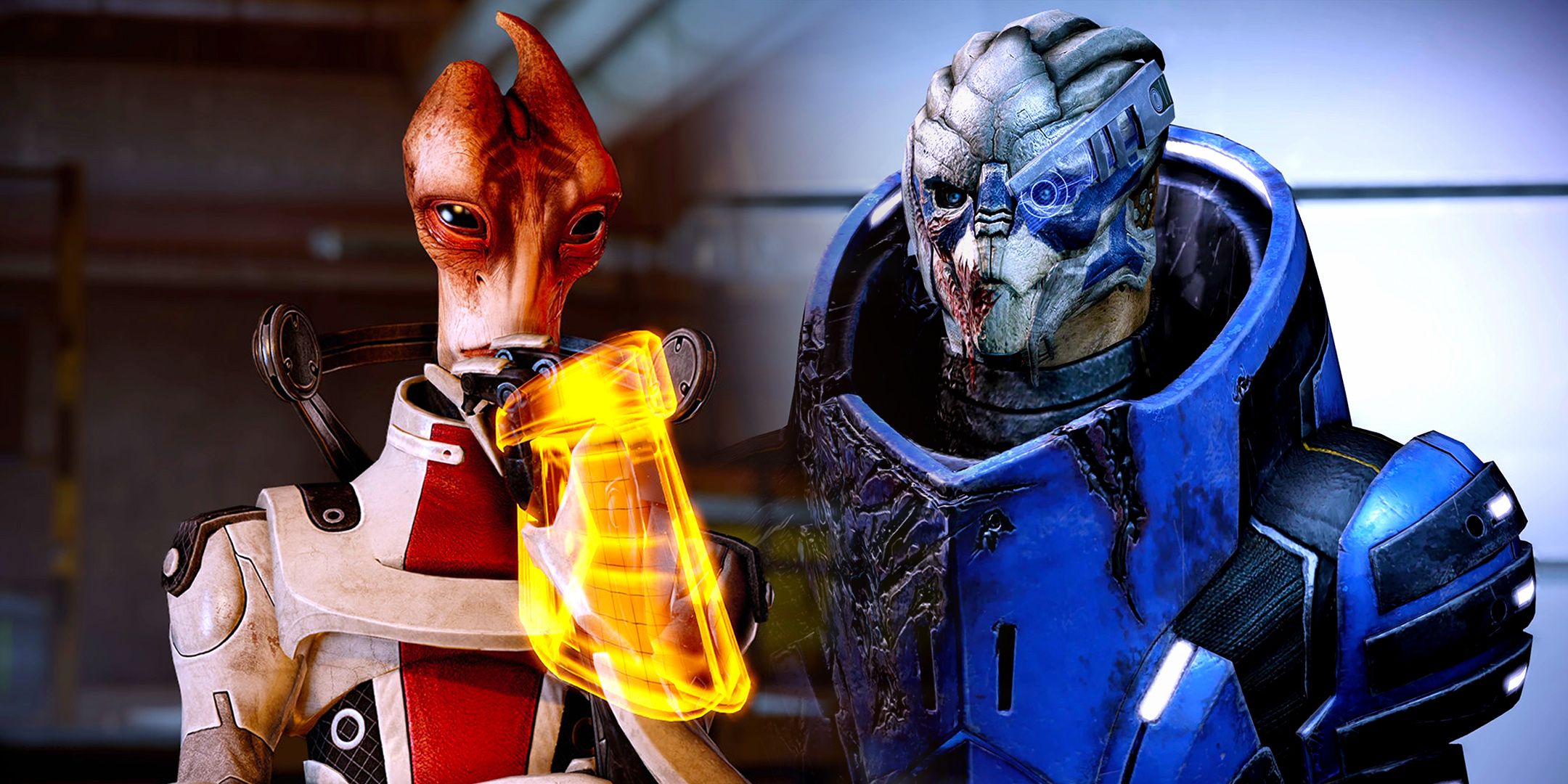
Related
10 Mass Effect Races That Should Be Playable In ME5
If Mass Effect 5 allows players to play as multiple different races, then it should include these popular races from the game as options for players.
Additionally, dialogue options on the left side of the dialogue wheel are typically optional and just meant for exposition. On rare occasions, dialogue on that side of the wheel does matter; it is usually colored either blue or red, again signposting which option is Paragon or Renegade. This means that players might get into the habit of ignoring the left side of the wheel when it isn’t colored.
In contrast, Baldur’s Gate 3 simply presents dialogue as list options to choose from. While things like Persuasion checks and class-specific dialogue options are present, they still aren’t always the best option depending on what players want to do. For instance, if a player wants to work with Yurgir, they can’t just turn their brains off and click all the Persuasion check, because if they do, they’ll convince the demon to end his own life. By not signaling to players the likely results of specific dialogue options, players are forced to choose their words carefully.
Mass Effect 5 Should Have A More Complex Morality System
Mass Effect's Paragon/Renegade System Was Too Simple
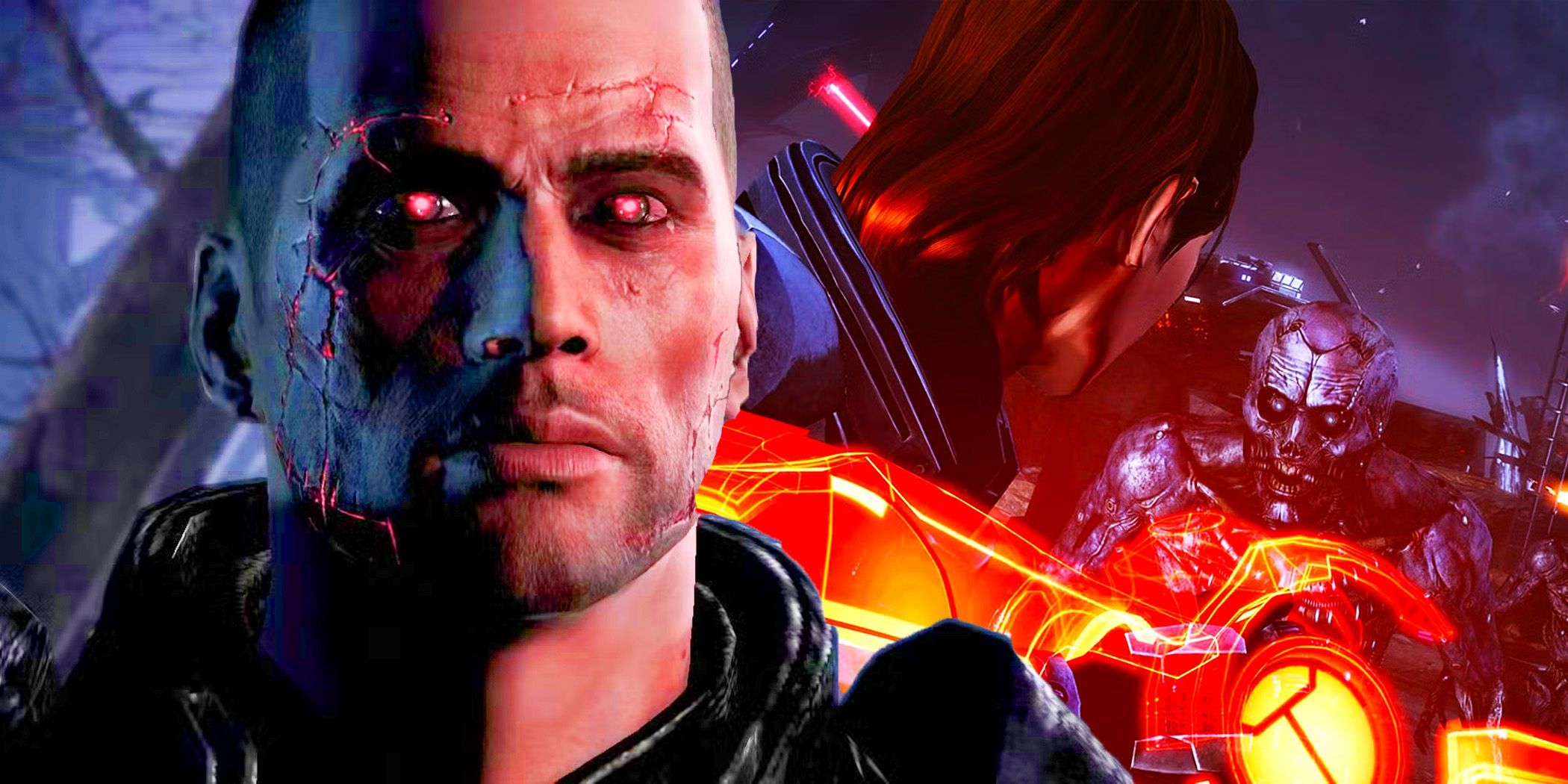 Custom image by Katarina Cimbaljevic
Custom image by Katarina Cimbaljevic
Similar to the dialogue wheel, Mass Effect’s simple morality system is something else that holds back the player’s ability to role-play effectively. Many of Mass Effect’s decisions are simply split into Paragon or Renegade options. For instance, when deciding what to do with the Rachni queen, players can either set her free (Pagaron) or kill her and effectively complete the genocide of her species (Renegade).
Although the game gives the players a lot of compelling reasons to pick one of the two sides, players aren’t able to respond with the same level of nuance. There is no ability to talk things out and try to create a plan where the Rachni go free, but there are still some safety measures in place in case they decide to start taking over planets again. For all the nuances that exist in any given issue in Mass Effect, the player is typically left with one of two blunt and simple options.
What matters more in Baldur’s Gate 3 are the relationships and reputations that players build, instead of simply making decisions deemed either wholly good or wholly bad
Additionally, certain dialogue options are limited to players who haven’t earned either enough Renegade or Paragon points. This incentivizes players to pick one of the two paths and stick to it regardless of their opinion on a given issue because they might be locking themselves out of important options later down the line. This again reduces many conversations to players simply tilting the stick toward their chosen path and passively watching Commander Shepard do the talking for them.
Baldur’s Gate 3 has a much better way of allowing players to choose how to handle different situations without being shackled to a dated morality system. When trying to do something like turn Shadowheart away from her self-destructive loyalty to Shar, players don’t need to have been flawless upstanding citizens beforehand. What matters more in Baldur’s Gate 3 are the relationships and reputations that players build, instead of simply making decisions deemed either wholly good or wholly bad. This allows players the flexibility to be morally upstanding in some instances, but a bit more dubious in others.
Mass Effect 5 Shouldn't Let Players Repeat Conversations
Repeating Conversations Takes Away The Weight Of Decisions
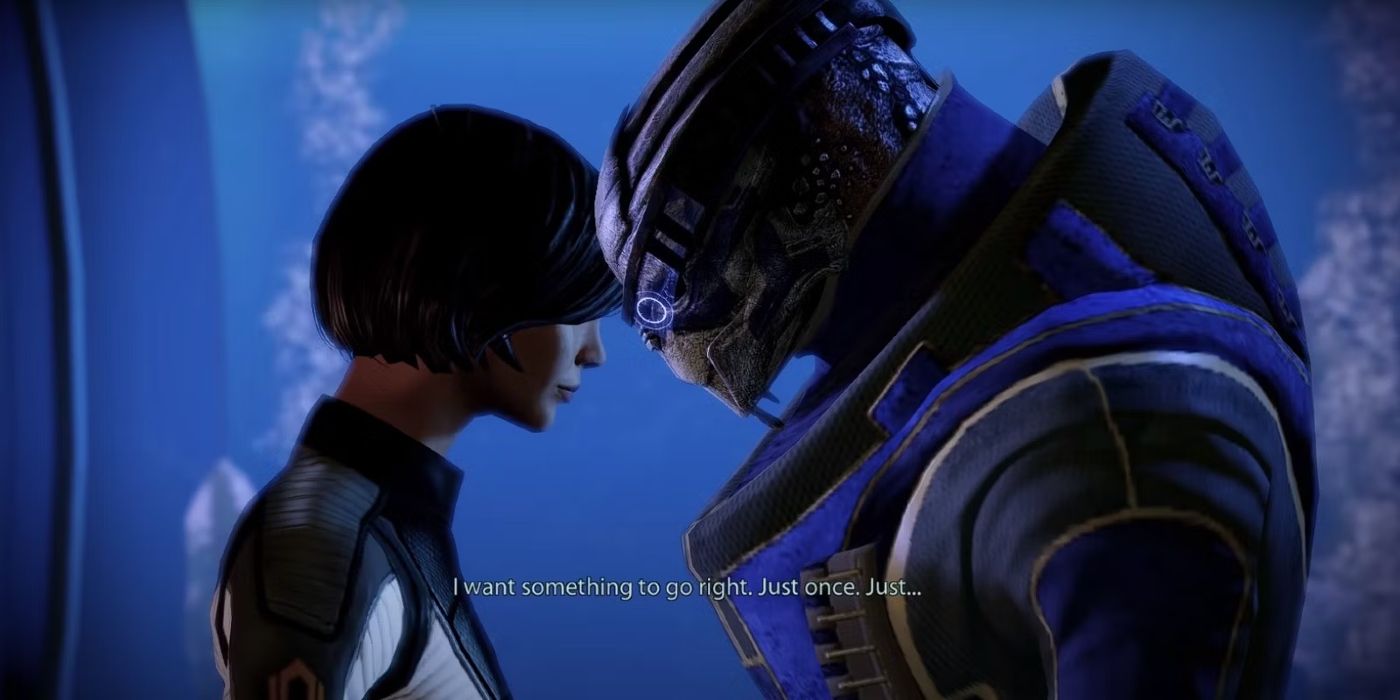
In the Mass Effect series, there are some conversations players are allowed to repeat ad nauseam until they get their desired outcome. This means Shepard can have a conversation with someone like Wrex, make Wrex angry with their choices, and then immediately have the same conversation again and fix their answers to get a more favorable response. This makes a lot of the relationships between Shepard and party members feel a bit hollow, as there is always the option to simply go back and choose better options.

Related
Why Baldur's Gate 3 Having Little DLC Content Is Actually Perfect
Baldur's Gate 3 doesn't have a lot of content in terms of DLCs and expansion packs. However, Larian Studios makes up for this in other areas.
While certain dialogue options in Baldur’s Gate 3 can be repeated, like asking companions to appraise your actions or checking where you stand with them, most conversations don’t repeat. This means if players put their foot in their mouths too many times, they could lock themselves out of a potential romantic relationship. In extreme cases, the wrong dialogue choice can even lead to party members leaving, like telling Gale he can’t have any more magical items to eat. This gives conversations more weight and makes relationships feel more meaningful.
A Silent Protagonist Allows For More Dialogue Choices
More Lines Can Be Written If They Don't Need To Be Voice Acted
Having Shepard be voice-acted was a big step for RPGs when Mass Effect came out, but while it was innovative, it also limited what could be done with Shepard’s character. By needing two separate voice actors (Jennifer Hale and Mark Meer) to record all of Shepard’s lines, there was a hard limit placed on the number of dialogue options Shepard could have in the game. By going back to the standard all-text model with a silent protagonist, Baldur’s Gate 3 was able to include a wider range of lines for players.
Voice acting for a character with an endlessly malleable personality can also be difficult to pull off. Shepard occasionally sounds a bit stilted or apathetic in certain line deliveries. This is no fault of the talented voice cast, but instead the game’s only option to avoid making a certain line delivery feel out of place with a character’s chosen personality for Shepard. By taking a page out of Baldur’s Gate 3’s book and keeping the protagonist silent, Mass Effect 5 can allow players to project whatever personality they choose onto their character more smoothly.
-
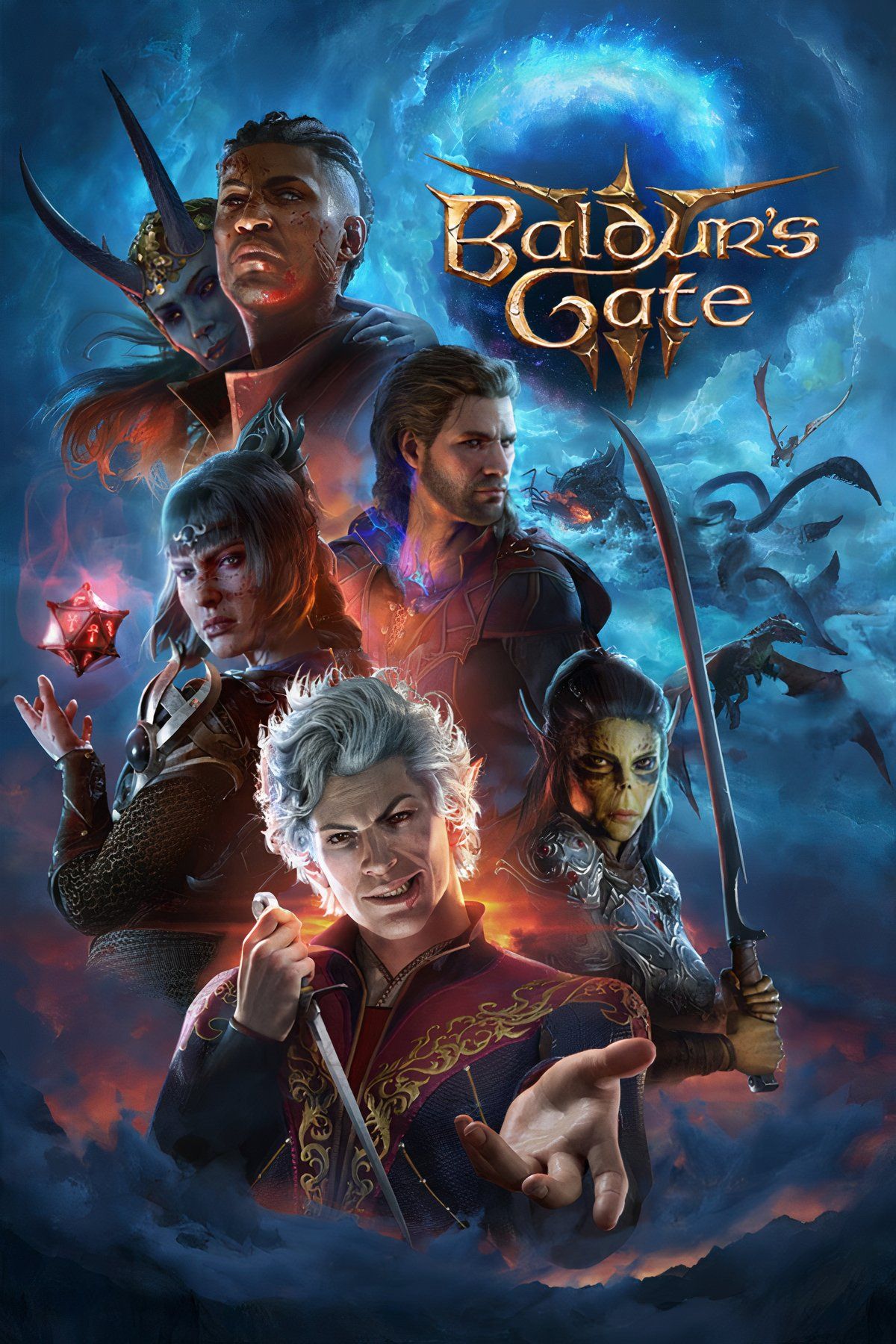
-

Your changes have been saved
Mass Effect: Legendary Edition









 English (US) ·
English (US) ·